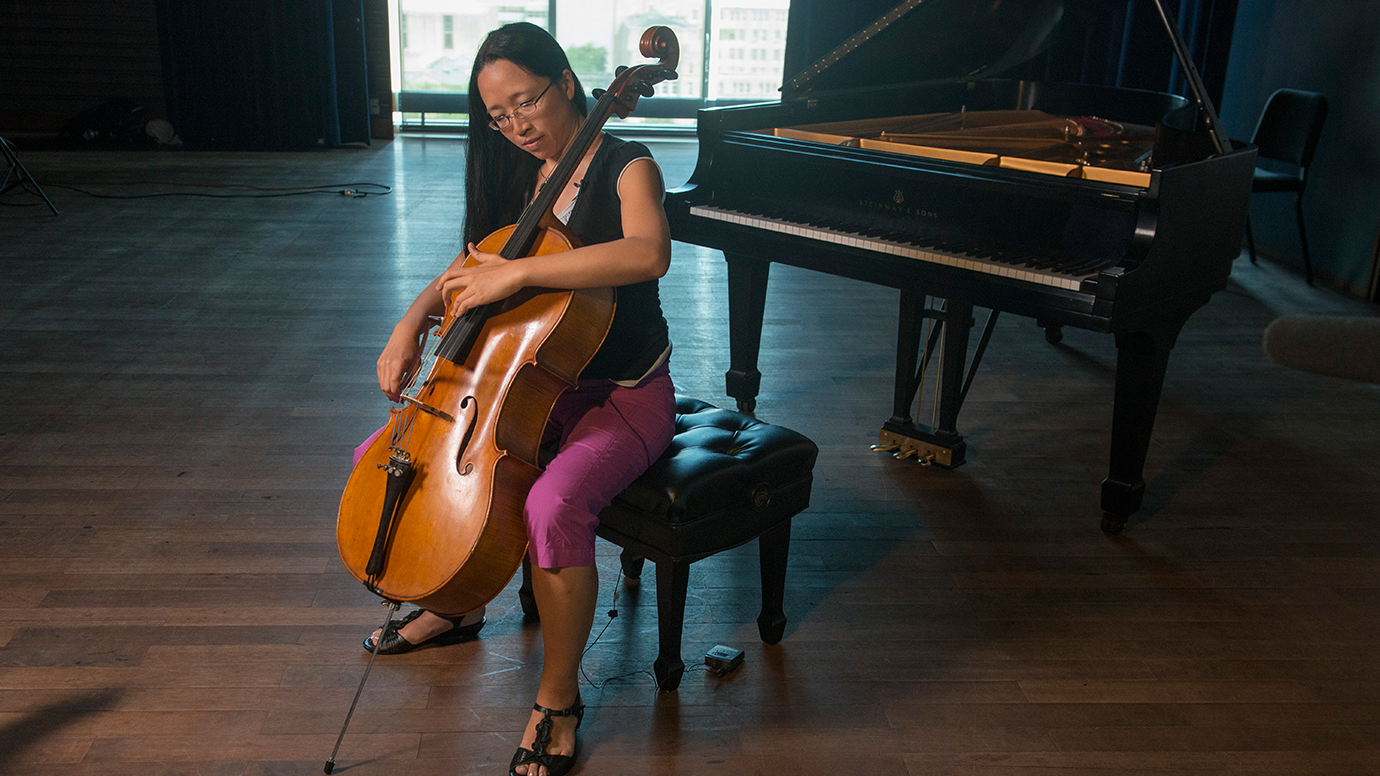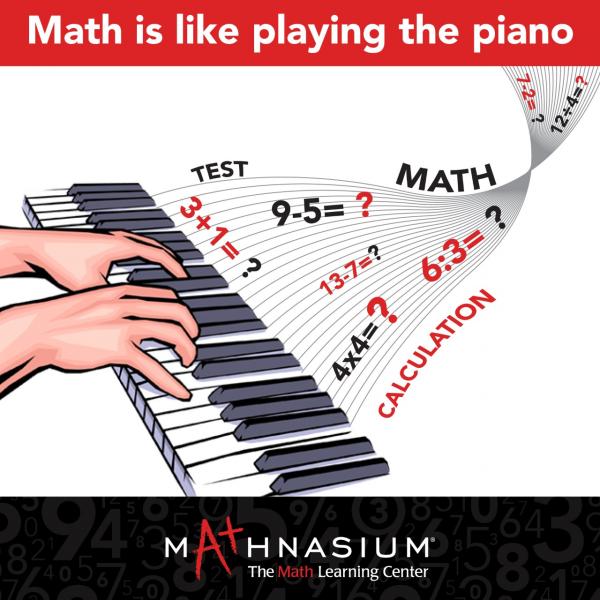Playing the piano can improve math skills. It enhances pattern recognition and mental mathematics.
Engaging in piano lessons or even self-taught piano playing might serve as a cognitive booster that transcends musical ability. Research indicates that the discipline required to learn piano, which includes reading music and timing, correlates with better performance in mathematics.
The link between music and math is rooted in pattern recognition. Both disciplines share similar cognitive processes, with music theory encompassing mathematical elements like fractions and ratios. Practicing the piano nurtures an understanding of these concepts in a real-world context, thereby offering a unique way to enhance mathematical thinking. For students and lifelong learners alike, integrating piano into their routine could be a melodious strategy for sharpening their math skills.
The Link Between Music And Math
Believe it or not, your piano lessons could make you better at math. Music and math are tightly linked. Playing music involves numbers and patterns. Math uses these too. This bond helps both children and adults. Let’s explore how playing piano connects with math skills.
Patterns Of Rhythms Vs. Number Patterns
Piano playing is about patterns. We find patterns in music, just like in math. Think of rhythms. They are patterns we can tap and count. Math has patterns as well. They are sequences we find in numbers. Both patterns are vital to making sense of music and solving math problems.
Rhythms in piano:
- Teach us to recognize repeating beats.
- Involve fractions and division as we split notes.
Number patterns in math:
- Help us understand orders and sequences.
- Are like keys to solving equations.
Pitch Recognition And Spatial-temporal Reasoning
Hearing differences in pitch is not just for music. It also improves spatial-temporal reasoning. This is the part of math where we solve problems in our heads. For example, piecing together a puzzle or figuring out what a 500-piece LEGO set should look like when finished.
| Musical Skill | Math Skill |
|---|---|
| Noting high and low notes | Visualizing patterns |
| Understanding scales | Grasping geometry |
By learning pitch in music, we boost our ability to imagine shapes and spaces in math.

Credit: news.uchicago.edu
Cognitive Benefits Of Piano Playing
Playing the piano not only produces beautiful music; it also gives your brain a serious workout. Embracing the ivory keys can lead to impressive cognitive benefits, especially in the realm of math. The intricate relationship between music and math can enhance a variety of cognitive abilities including memory and problem-solving skills.
Enhanced Memory Function
Piano requires the use of both short-term and long-term memory functions. Learning and playing songs boosts memory capacity. Let’s explore how this musical training benefits the brain:
- Increases neural connections
- Encourages brain structuring that aids recall
- Improves the ability to remember mathematical formulas
Improved Problem-solving Skills
Piano playing involves understanding musical pieces as complex puzzles. This aspect translates into better problem-solving skills. Some advantages include:
- Boosting mathematical thinking
- Enhancing pattern recognition
- Developing strategic thinking
Piano players often excel in math as they apply similar skills to both disciplines.
Research Insights On Piano Impact
Are you curious about how piano lessons might boost your math skills? Research points to a fascinating connection. Let’s dive into the insights gained from studies.
Studies On Music Education And Math Performance
Scientists have been studying if music, especially playing the piano, improves our ability to solve math problems.
- A study from the University of California found that second-grade students with piano training showed better math scores than those without.
- Researchers in this field point to improved pattern recognition, a skill that is crucial in math.
- A study published in ‘Psychology of Music’ showed that group keyboard lessons improved preschoolers’ spatial-temporal reasoning, a key aspect of math.
Longitudinal Analysis Of Piano Training
A longitudinal analysis follows students over time to see if piano lessons consistently help with math.
- One study tracked a group of students from elementary to high school and found those who played the piano scored higher on math tests year after year.
- This analysis suggests that piano lessons may have a lasting effect on students’ math performance.
Piano might not just make music, but it also creates better mathematicians.
Integrating Piano In Learning Curricula
Math and music might seem worlds apart, but they harmonize more than you think. Imagine a classroom buzzing with the sound of pianos. This isn’t a music class; it’s math time. Integrating piano learning into the curriculum is transforming how kids understand and appreciate math. Let’s discover how schools are hitting the right notes with this innovative approach.
Curriculum Models Incorporating Music
Music-based curriculum models offer a holistic approach to learning. These models blend traditional subjects with musical elements. For math, piano keys provide a tangible way to explore patterns, fractions, and sequences.
| Model Type | Key Characteristics |
|---|---|
| Musical Arithmetic |
|
| Rhythmic Fractions |
|
Case Studies: Piano Programs In Schools
Schools are implementing piano programs and documenting the impacts. These case studies highlight the positive outcomes on math proficiency.
-
Harmony Project: A Los Angeles program with significant gains in student math scores.
- Focuses on brain development through music
- Students engage in both group and solo piano practice
-
Keys of Inspiration: Students across the USA access pianos and technology for learning.
- Integrates piano labs in school
- Combines music theory with math instruction
Real-world Examples And Testimonials
The connection between piano playing and math skills shines through real-life stories. Successful individuals often credit music for their mathematical prowess. Let’s explore this fascinating link through firsthand experiences.
Personal Accounts From Students And Educators
- Amy, a high school student, noticed better grades in math after starting piano lessons. She says piano practice improved her focus and problem-solving.
- Mr. Thompson, a math teacher and part-time musician, observes students who play an instrument excel in math. He believes music helps understand complex patterns.
Success Stories Of Musicians With Math Acumen
Famous composers like Iannis Xenakis used advanced mathematics to create compositions. Their music showcases a deep understanding of math concepts.
| Musician | Mathematical Field | Notable Achievement |
|---|---|---|
| Brian May | Astrophysics | Ph.D. in astrophysics and guitar legend |
| Art Garfunkel | Mathematics | Masters in math and a celebrated singer |
Navigating The Challenges
Does Piano Help With Math? Many question this idea. We’ll explore whether tickling the ivories can indeed foster better numerical abilities. But it’s not always an easy tune to play. There are hurdles to clear and doubts to quiet. Let’s dive into the challenges and see how we can address them effectively.
Addressing The Skepticism
It’s common to question how music links to math. Some see this connection as mere myth. Yet research studies suggest otherwise. They show music, especially piano, can enhance cognitive skills including math. This is due to improved memory, attention, and spatial-temporal skills — all crucial for math.
Still, critics exist. Their concerns are valid and demand attention. To convince them, we must present clear, concrete evidence. Peer-reviewed studies are key here. They provide scientific backing that helps in reducing doubt and building trust.
Overcoming Practical Hurdles In Implementation
Integrating piano lessons with math education presents practical issues. Access to instruments is a significant barrier. Cost and space are often at a premium. Schools may struggle with funding. Families might not have the room.
To solve this, creativity is paramount. Digital keyboards and piano apps offer affordable alternatives. They take up less space and are often cost-effective. Schools can invest in these solutions to circumvent traditional obstacles.
- Seek grants and partnerships for funding
- Adopt digital solutions for space and budget constraints
- Plan structured schedules to maximize the use of available resources
By addressing these practical concerns, we can clear the path for piano’s beneficial role in enhancing math skills.

Credit: www.mathnasium.com
Frequently Asked Questions Of Does Piano Help With Math
What Kind Of Music Improves Math Skills?
Classical music, particularly compositions with a tempo of 60 beats per minute, can improve mathematical skills by enhancing concentration and memory retention.
Does Playing Piano Help Iq?
Playing the piano can improve cognitive abilities, potentially raising IQ. Studies suggest it boosts memory, language, and spatial-temporal skills.
Does Playing Music Help With Math?
Playing music can enhance mathematical skills by improving concentration, spatial-temporal reasoning, and pattern recognition. Studies show a positive correlation between musical training and math proficiency.
What Music Is Best For Studying Math?
Classical music, instrumental tracks, or ambient soundscapes can enhance focus during math study. Avoid lyrics to minimize distractions. Choose calming melodies that aid concentration and memory retention.
Conclusion
Drawing on the evidence presented, it’s clear that piano playing can influence math skills positively. Engaging with music fosters critical thinking and problem-solving, akin to math’s demands. Encourage your child or dive in yourself; the correlation might just sharpen those numerical abilities.
Embrace the piano’s rhythmic patterns and enrich both musical and mathematical intelligence.
